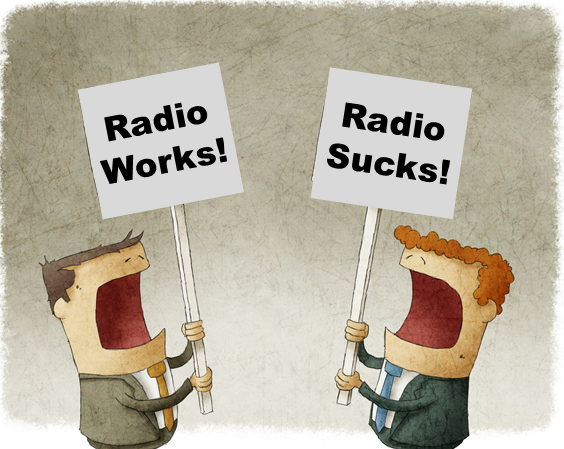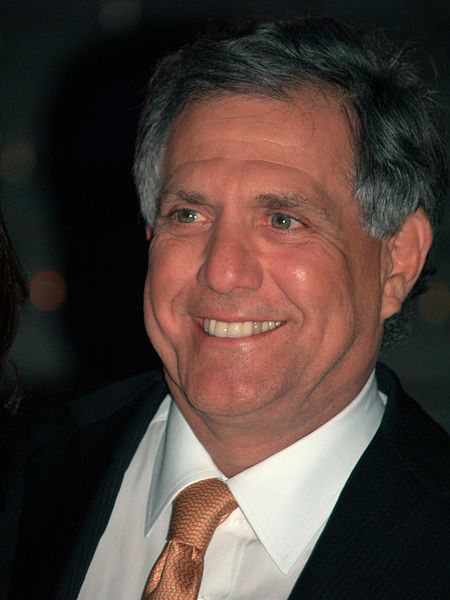 Radio executives are grappling to get a handle on the advertising climate this year – and it’s not been easy. There are a lot of moving parts.
Radio executives are grappling to get a handle on the advertising climate this year – and it’s not been easy. There are a lot of moving parts.
The unpredictability of the election – through the primaries, now leading up to the party conventions, and onto the general contest – is a tough call. This cycle doesn’t look like anything we’ve ever seen before for reasons we all know. How it will manifest itself into radio dollars is even eluding the political consultants.
But perhaps the biggest paradox revolves around the perceived health of the broadcast radio industry. And it greatly depends on who you talk to.
Station sellers are being bombarded with negatives – every day – by advertisers who relentlessly question the viability and validity of AM/FM radio.
The narrative goes something like this:
“Your two biggest companies are in financial dire straits, loaded down with debt. And then there’s the CBS thing. Why would they give up on radio if the business was healthy?”
And then:
“Nobody I know listens to the radio. My kids don’t listen. And I only listen now and then in the car.”
And on it goes. At too many shops and in markets big and small, that’s often the atmosphere facing sellers, and it’s a challenging one. Media buyers could never be called pushovers, and now they are asking existential questions about radio’s survival and the efficacy of advertising on even its best stations. It’s a challenging environment, testing every radio sales organization.
Yet, there’s another side to the question – and that’s the results we’re beginning to see as more broadcasting companies report their Q1 earnings. Consider:
Entercom +6%
Beasley +13%
Salem +4%
iHeartRadio +5.9%
Saga +6.5%
Now to be fair, not everyone had a stellar first quarter, including CBS Radio, which was off 2%. But in a sea of questions and negativity floating around the radio industry, there are continued signs of financial health, along with success stories that suggest the business is adapting to the disruption that is all around it.
And yet, comments like the ones Les Moonves spilled to CNBC’s David Faber earlier this year in explaining his company’s divestitutre of radio continue to take their toll. He referred to radio as “slow growth,” making it clear that radio has no place in his company’s portfolio. Hearing those observations from one of the most respected, media savvy executives who oversees some of the country’s most iconic stations feels like rejection of the worst kind.
It’s in the way that you say it, and Moonves’ comments only serve to generate more doubt abut radio’s viability. And it’s one thing when sellers in Des Moines or Detroit hear pushback about radio because of Moonves’ remarks. It’s another for the talented people who work at CBS Radio who have spent large chunks of their careers building iconic brands like KROQ, WCBS-FM, WBBM, and WWJ. It leaves more than a bad taste.
 We’ve all been through break-ups – on both the giving and receiving ends. There’s often a way to cleanly get out of relationships with the minimal amount of acrimony, and then there’s the way that creates lasting, long-term collateral damage. No one was expecting a “It’s not you, it’s me” explanation from Moonves about why CBS is dumping its radio portfolio. But a “Dear Radio” appearance on CNBC simply makes what was already a challenging situation even gnarlier.
We’ve all been through break-ups – on both the giving and receiving ends. There’s often a way to cleanly get out of relationships with the minimal amount of acrimony, and then there’s the way that creates lasting, long-term collateral damage. No one was expecting a “It’s not you, it’s me” explanation from Moonves about why CBS is dumping its radio portfolio. But a “Dear Radio” appearance on CNBC simply makes what was already a challenging situation even gnarlier.
It bruises the pride of CBS Radio employees, while denting the pocketbooks of thousands of professionals through the radio business.
In the ad community, giving the grinders more grist to drive down rates and rationalizing buying Pandora just makes what is already a tough road that much more difficult.
The folks working at CBS Radio will gut this out, and perhaps come out even better: more agile, and more independent than ever before. Not being shackled to strategies dictated by the TV division or the digital mavens could prove to be both liberating and profitable.
But for everyone else trying to communicate the true power and value of radio, Moonves’ comments were ill-placed, and simply unnecessary. He has become successful because he’s a brilliant executive who has made many smart decisions at the most opportune times. But the art of unwinding deals and relationships take as much finesse as putting them together. And in this case, there were better ways to break up a relationship that’s being going strong for decades.
Unless you’re Donald Trump, words matter. They resonate and are parsed by analysts. And thanks to the Internet, they have a degree of permanence.
But here’s the other message that many working in radio might have thought when they read or saw Moonves’ comments:
Radio is not going away.
- What To Do If Your Radio Station Goes Through A Midlife Crisis - April 25, 2025
- A 2020 Lesson?It Could All Be Gone In A Flash - April 24, 2025
- How AI Can Give Radio Personalities More…PERSONALITY - April 23, 2025




The biggest detractors of radio always seem to be those in radio. Because it’s hard.
Radio owners who grow frustrated with its business model forget that the business AND the industry change daily. When you work in radio, innovation is part the survival of the business and has been since it’s advent. Sometimes the amount of effort to endure and overcome exceed the expected result – which is why people get out of radio.
Matt, this is a good comment. You’re correct that it can be demoralizing at times, but that’s probably true of any business, including television. Thanks for taking the time.
Fred, From the agency and a former PD perspective: As a buyer, I still believe in radio – I just refuse to pay for a spot that runs 7th in a 10 cluster break. As a PD, for innovation to occur (ex: 150 song playlists, selling beyond jock endorsements, etc.) we’ll need a generational change in leadership – much like Washington and not unlike the style shift that occurred when FM overtook AM. 10-term congressmen are just too entrenched and 50+ year old ratings gaming has little to do with listener needs today. Here’s a word game for you. Fill in the blank:
C O N T E _ T. After 100+ invitations with fellow radio/agency peeps the results tell the tale. #1 is CONTEST, #2 is CONTENT and #3 is CONTEXT. When contest become content, context is lost for all but a few listeners. Way past time to flip the approach to programming and sales. Break the mold.
Jim, thanks for the no-holds-barred comment about why a different mindset is necessary to meet changing media and marketing needs. We addressed the commercial load issue just last week in a post here. Appreciate you reading the blog and engaging here.